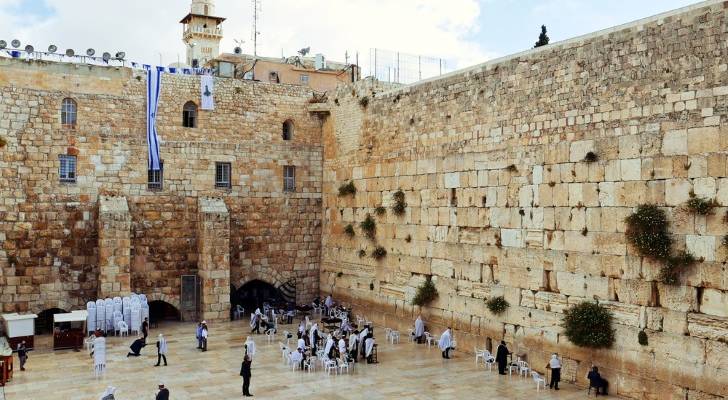The Europeans are upset that Israel is developing tourism in Jerusalem “at the expense of other religions and cultures.” Really?!
By: JNS.org and United with Israel Staff
A European Union (EU) report leaked to The Guardian expressed ire over Israeli tourism development in and around Jerusalem’s Old City, calling ongoing Israeli infrastructure improvements a form of “touristic settlement.”
The EU Heads of Mission in Jerusalem issued a report warning that the development of Israeli tourism in the ancient City of David, currently located within a Palestinian neighborhood, and a planned cable car that would transport tourists to the Western Wall (Kotel), which is within the Old City, were “a political tool to modify the historical narrative and to support, legitimize, and expand settlements.”
The report asserts that the projects promote the “historic continuity of the Jewish presence in the area at the expense of other religions and cultures.”
The Europeans, through votes at international forums, have repeatedly denied the Jews’ connection to Jerusalem.
The cable car, which EU diplomats have dubbed “highly controversial,” is anticipated to be operational by 2020, and is being erected to ease traffic on the narrow streets surrounding Jerusalem’s Old City and drastically reduce travel time, making the holy sites more accessible to tourists and visitors. An estimated 25,000 people are expected to utilize the system per day.
Additionally, the report states, “Critics have described the project as turning the World Heritage site of Jerusalem into a commercial theme park while local Palestinian residents are absent from the narrative being promoted to the visitors.”
The report further suggested that the cable car project would pose a security threat, as one of the cable car stations would be a little over 420 feet from the Temple Mount/Haram al-Sharif site administered by the Jordanian Islamic Wakf.
Over 30 registered World Heritage sites around the world are accessible via cable car systems.
Officials involved in the project explained that the routes of the cable cars were carefully chosen to refrain from diplomatic controversy or infringement on anyone’s rights.
It is of significance to note that archeologists digging in Jerusalem’ Old City and its environs uncover evidence attesting to the Jews’ rich history and deep connection to the city, on an almost weekly basis.
Most recently, Israeli archaeologists uncovered at Ein Hanniya part of a “capital,” which is the topmost part of an ancient column. Capitals such as the one found were typical of royal structures in the First Temple period.
Archaeologists also uncovered a rare silver coin from the 4th century BCE, one of the most ancient ever found in the Jerusalem area.
However, archeologists have yet to unearth any findings from the “Palestinian period,” possibly because they have yet to decide when it occurred, or because it never did occur at all.
